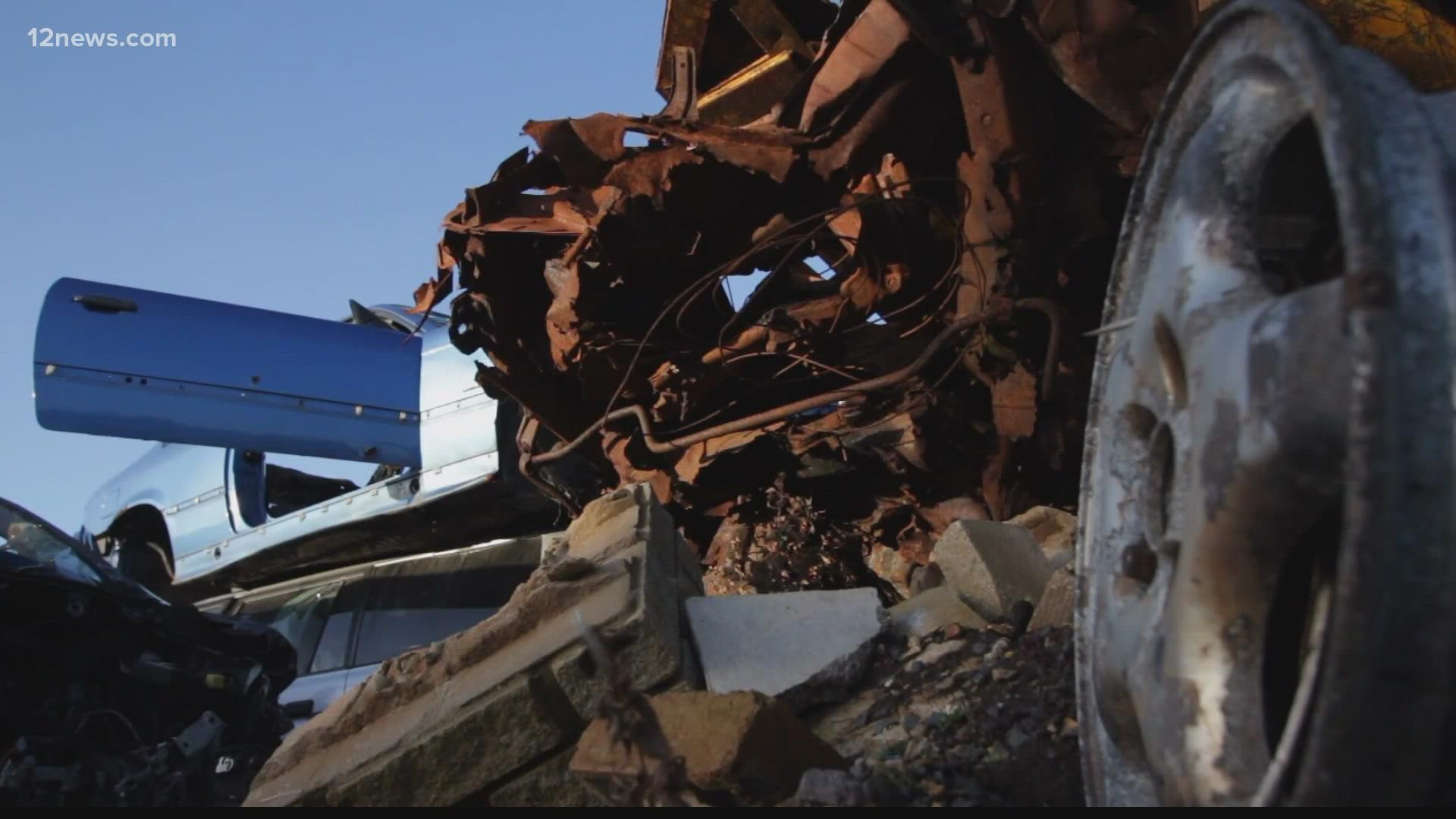PHOENIX — Catalytic converter thefts are rising, but are the people behind the operations actually being caught?
The device is meant to help with air emissions and they contain valuable minerals and metals that can be melted down and sold for thousands of dollars per ounce.
Phoenix police said criminals steal hundreds of converters every month, but after being stolen, where do they go?
“That’s a really good question because we honestly don’t know where they are going," Phoenix Police Detective Adam Popelier said, "A majority are leaving the county, and the majority of those are leaving the state."
Popelier said criminals used to turn to social media to sell their ill-gotten gains but now have moved offline and are making deals through black market connections.
"Let me paint you a new picture. It’s noon, broad daylight in a parking lot and the thief steals a catalytic convertor," Popelier said. "Ten minutes away, he meets his contact and sells the catalytic convertor in broad daylight."
Stealing is illegal, but so are the unlicensed sales of catalytic converters.
However, according to the City of Phoenix and Maricopa County Superior and Justice Courts, only two people have been charged with illegally buying or selling these converters.
“The sheer number of them, without catching them in the act, it’s very difficult,” Popelier said.
Despite the valuable minerals inside, catalytic converters have nothing on them to track back to cars. Without that, police struggle to prove if a convertor was stolen.
“We might catch someone with these auto parts that we know are stolen but have no way of connecting them to a victim," said Dave Goitia with the Glendale Police Department.
While stealing a converter may be a felony, buying or selling one of these converters illegally is only a misdemeanor.
If convicted, criminals often only pay a fine for a product that can go for thousands.
As converter thefts have become more popular, the complexity of the black market has grown.
"Extremely complex," Popelier said. "You start with the individual who steals it, they have an unknown contact that they sell it to. Because they can't sell it directly to a scrap yard. That person may or may not be affiliated with a scrapyard. They could be taking it directly to a refiner out of state or out of the country. Or, it could be changing its hands multiple times before legitimately getting to a scrap yard."
Police may have a new tool in their fight against converter thefts. A bill in the legislature would make it a crime to possess a converter unless it's part of a business allowed to have them.
Up to Speed
Catch up on the latest news and stories on the 12 News YouTube channel. Subscribe today.

